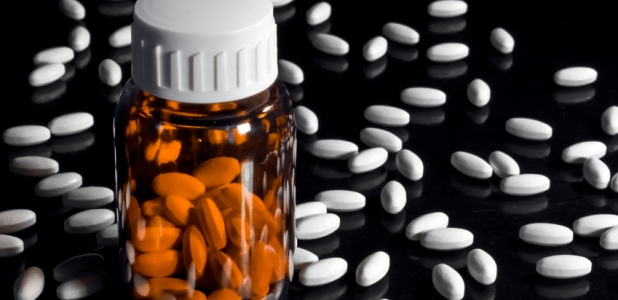
Ability is everything on the field, court, ice and pitch. If you can’t perform to the best of your physical abilities, someone will be ready to take your place. Your coaches and managers, who should be considered as mentors and borderline parental figures, won’t hesitate to replace you if your body is no longer able to perform the way it once did.
This puts an enormous amount of pressure on men and women passionate about the sports they play. Unfortunately, it also fuels a culture of concealing pain and injury, which can have devastating effects on an athletes’ livelihood in both the short and long-term. Now we’re learning the pain killer culture is no longer limited to big-name college programs or big-name professional athletes, either.
Pain Killer Addiction Through The Ranks
The habit of concealing sports-related injuries and chronic pain via prescribed or illegally acquired pain killers is starting to find its roots in high school athletics, according to Healthday.com’s reporting on a survey conducted by the U.S. National Institute on Drug Abuse (1). The survey covered 2,300 high school seniors, keeping track of their extracurricular activities, athletics included. Those who participated in sports were more likely to have admitted to taking prescription pain killers, with males in football programs leading the pack.
The dependence on pain killers to remain on rosters has become standard practice on college campuses across the country as well. Student athletes – many of whom are dependent on their athletic abilities to remain enrolled – are even more pressured than they were in high school to do everything they can to keep playing. This is even felt if bad injuries should otherwise have them benched. Many student-athletes have their sights set on professional sports opportunities and see any sign of weakness as an instant disqualifier for being a draft prospect.
Pain Killers And Pro Sports
 The National Football League, perhaps unfairly, is currently the poster child for athletic organizations plagued by a silent pain treatment culture among players. In two of the several high profile examples of NFL player pain killer addiction discussed in an article published by Axis Recovery, criminal conduct was committed (2). In 2000 former cornerback Craig Newsome was charged with attempting to obtain a prescription pain killer under false pretenses, after developing an addiction to Percocet during his time playing in the National Football League. More recently, former NFL quarterback Ryan Leaf was arrested and charged in 2014 for breaking and entering a private residence to steal prescription pain killers.
The National Football League, perhaps unfairly, is currently the poster child for athletic organizations plagued by a silent pain treatment culture among players. In two of the several high profile examples of NFL player pain killer addiction discussed in an article published by Axis Recovery, criminal conduct was committed (2). In 2000 former cornerback Craig Newsome was charged with attempting to obtain a prescription pain killer under false pretenses, after developing an addiction to Percocet during his time playing in the National Football League. More recently, former NFL quarterback Ryan Leaf was arrested and charged in 2014 for breaking and entering a private residence to steal prescription pain killers.
Indeed, the culture of pain killer dependence in athletics goes beyond the games and locker rooms, directly influencing the lives of the players long after their sports careers have ended. Resorting to criminal activity to feed addiction is an issue, but fortunately rare among former athletes dealing with drug addiction. The challenge most commonly posed to athletes with addictions is how to transition into normal lives and careers. After all, only three-percent of college athletes will go pro (3), and the average professional sports career only lasts a little over five and a half years( 4).
Athletic performance allows for a wide range of emotional, mental, and physical freedom so long as the results are there on the scoreboard. In fact, the same behavior is less tolerated among the majority of regular 9-5 employment opportunities. If former athletes are addicted to pain killers and exhibiting poor conduct as a result, it’s increasingly difficult for them to find suitable employment, let alone function normally among friends and family.
But this is assuming these men and women are able to make it over one of the biggest hurdles facing drug addicts these days: the employment drug test. If a former professional linebacker wants to get a job on staff with a college team he’ll more than likely be required to take a drug test. If he continues to battle addictions he acquired back in high school, the job opportunity is likely lost.
Pressure is being increasingly put on the NFL in particular to do something about the culture of pain killer addiction among players. While any efforts to reduce drug addiction in athletes is welcome, expecting the NFL to be the deciding factor, or holding it responsible, is wholly unfair. The problem of athletes depending on prescription painkillers to maintain performance begins well before the professional level. Not to mention, by sheer numbers alone, the problem affects far more amateur and college players than it ever will professional.
Is There A Solution?
The greatest obstacle facing sports organizations tasked with eliminating a culture of drug abuse is perhaps the relationship between the personal economies and athleticism of the participants. Too often athletics are the one and only gateway to fortune and opportunity for men and women. So long as there exists such immense pressure on players to keep playing past the pain, the demand for ways to kill it will remain.
Sources:
1. http://consumer.healthday.com/general-health-information-16/drug-abuse-news-210/abuse-of-prescription-painkillers-on-the-rise-among-high-school-athletes-survey-690253.html
2. http://www.axisresidentialtreatment.com/drug-abuse/addiction-pro-sports/
3. http://freedom.mysdhc.org/guidance/information/From%20High%20School%20to%20Pro%20Statistics.pdf
4. http://www.rsvlts.com/2013/07/22/longest-sports-careers/


With all the problems with pain killers and their side effects, you might be interested in a safe, non-invasive, without surgery or manipulation technique that has helped many eliminate their pain when conventional standard medicine and training methods had failed to help. In published research with the City of St. Paul, MN, in 1998, the the technique helped the City save over $1million in workers’ compensation costs. Head Football Coach Wallace enlisted help to use the technique to help his All American tight end who was on crutches. In approximately 40 minutes, over the phone, the athlete was without pain and did not need his crutches. His return to play, helped his team make the National Play-offs for the first time. Finally, a nurse was in pain from breast biopsy cancer surgery. Over the phone, her pain was eliminated. There’s more…To learn about the technique go to: http://www.reliefforyou.com/page7.html
Thanks a lot.
I didn’t know this side of sport and the hardworking. Thank you for sharing the post!
I read this article! I hope you will continue to have such articles to share with everyone! thank you! hotmail login
So sad to see how many athletes are affected by drug addiction these days. Luckily, the country is taking proactive steps to curb the accessibility of opioids and other addictive prescription drugs. I wrote an article about the increasingly evolved legislation surrounding the subject, which you’re welcome to check out at https://newyorkessays.com/examples/leadership/ . I am confident that, with time, we will stop this epidemic once and for all.
High quality, pocket friendly and fast, these three words best describe homework market . Writing is not as easy as it seems, especially when you are asked to submit plagiarism free essay. I would definitely recommend Uni Tutor for all your writing tasks.
https://papergraders.net/reviews/homeworkmarket-com/
The share of painkillers you share is amazing.
This post of Pain Killers, Athletes, and Addiction is so bad and curious for all the new individuals but there are also very fantastic automobiles available of Proton Company in Pakistan, which are given their most precious car for sale for the next-consumers to having these grateful vehicles in all over Pakistan.
As a big fan of the NFL and love to watch the matches in the sports bars near me. Well, every sport needs fitness at the highest level but in my experience, NFL needs more than others. I love the blog and the experience to get the worthful information and data.
CVS offers a range of over-the-counter pain relievers to help alleviate the discomfort caused by headaches, sore muscles, and arthritis. These medications are designed to provide fast and effective relief from pain and are available without a prescription.
Don’t forget to share your feedback about CVS at cvs health survey portal https://www.cvshealthsurvey.page/ and get an opportunity to win a $1000 gift card.Our feedback will be helpful to the CVS store management to know the likes and dislikes of customers
Explore stylish & comfortable Newborn dresses for Babby 0-6 months old babies at Me n Moms. Perfect for your little one’s first months with soft fabrics.https://ministitch.in/